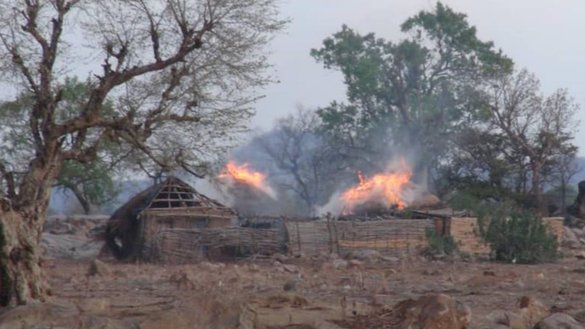The US military is moving away from its traditional approach on promoting good governance and addressing the root causes of insurgency in Africa. Instead, it is pushing for its African allies to take on greater responsibility for their own security.
This strategic pivot was evident during African Lion, the U.S. military’s largest joint training exercise on the continent. “We need to be able to get our partners to the level of independent operations,” said Gen. Michael Langley, head of U.S. Africa Command, in an interview on the exercise’s final day.
STORY CONTINUES BELOW THIS AD
Langley stressed the need for “burden sharing,” noting that empowering partners to manage their own security has become a key objective under former President Donald Trump’s defence department.
More than 40 nations participated in the four-week exercise, which included desert-based drills such as drone operations, close-quarters combat simulations, and satellite-guided rocket launches.
While the operational elements mirrored those of previous years, the tone has notably changed. The U.S. has scaled back rhetoric that once distinguished it from Russia and China, including messaging focused on the integration of defence, diplomacy, and development, in favour of building tactical self-reliance among partner nations.
“We have our set priorities now — protecting the homeland. And we’re also looking for other countries to contribute to some of these global instability areas,” he said, referencing U.S. support for Sudan.
The shift comes as the U.S. military makes moves to ”build a leaner, more lethal force,” including potentially cutting military leadership positions in places like Africa, where America’s rivals continue to deepen their influence.
China has launched its own expansive training program for African militaries. Russian mercenaries are recalibrating and cementing their role as security partner of choice throughout North, West and Central Africa.
STORY CONTINUES BELOW THIS AD
In an interview a year ago, Langley emphasized what U.S. military officials have long called a “whole of government approach” to countering insurgency. Even amid setbacks, he defended the U.S. approach and said force alone couldn’t stabilize weak states and protect U.S. interests against the risk of violence spilling out.
“I’ve always professed that AFRICOM is just not a military organization,” Langley said last year. He called good governance an “enduring solution to a number of layered threats — whether it be desertification, whether it be crop failure from changing environments, or whether it be from violent extremist organizations.”
The “whole of government approach” no longer occupies the same place at the center of U.S. messaging, though Langley said holistic efforts have worked in places like Ivory Coast, where development and defense had reduced attacks by jihadi groups near its volatile northern border.
But such successes aren’t a pattern.
“I’ve seen progression and I’ve seen regression,” said Langley, who is scheduled to exit his post later this year.
STORY CONTINUES BELOW THIS AD
The U.S. military’s new posture comes even though many African armies remain ill-equipped and insurgent groups expand.
“We see Africa as the epicenter for both al-Qaida a

